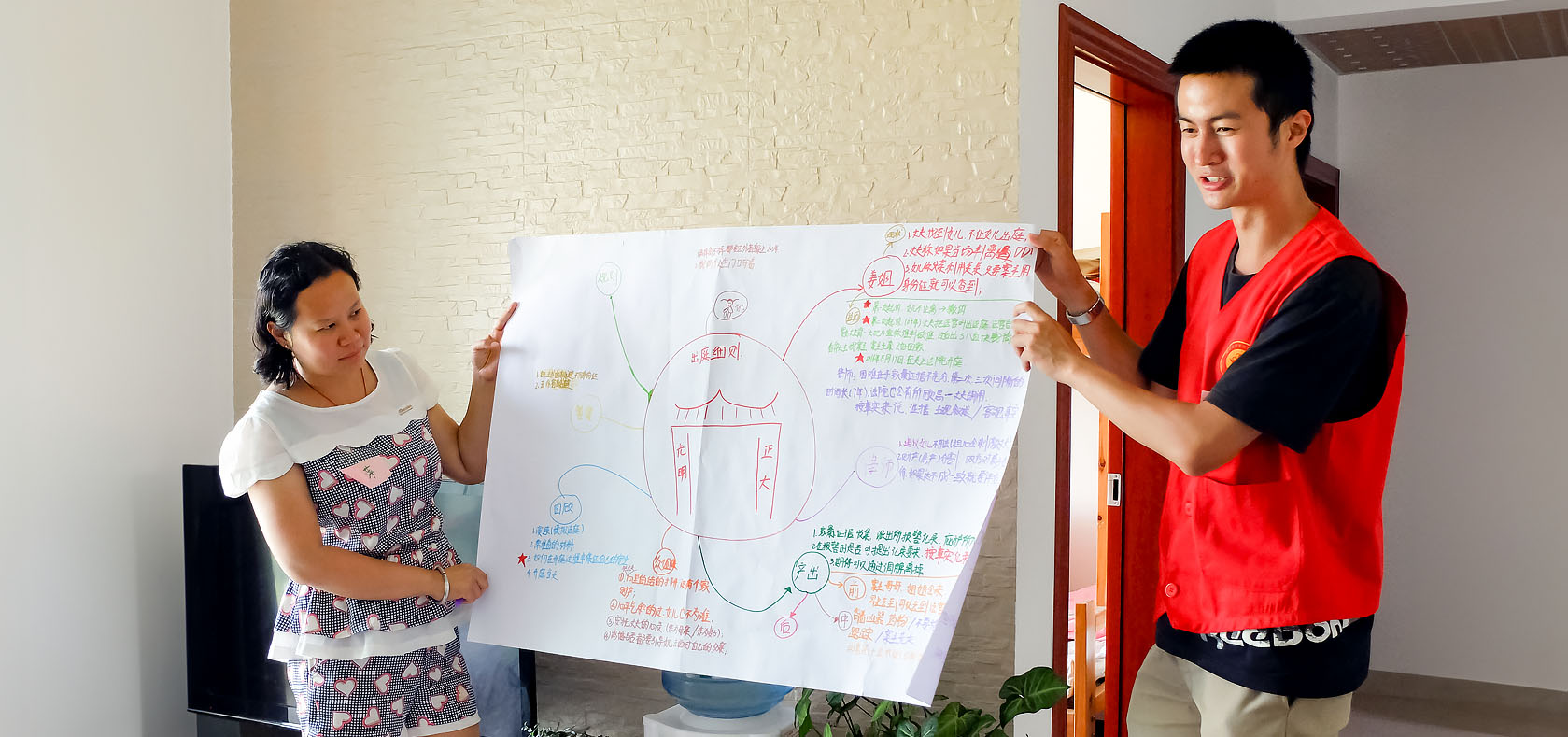In the words of Shu Hang: “We hope to see more men actively participate in the fight against gender-based violence”
Date:

Shu Hang is the Director of the Yunnan Mingxin Social Work Service Center in Wuhua District, Kunming City, in southwest China. The Service Center was established in 2014, to provide services for the prevention and intervention of domestic violence. Through a domestic violence hotline and on-site services, the Service Center has provided 3,858 services to 482 domestic violence survivors. It also operates Nestling House, a hidden shelter in collaboration with the Yunnan Provincial Women’s Federation, providing 2,418 days of protection to 101 abused women and their relatives. In April 2023, Yunnan Mingxin Social Work Service Center joined UN Women China’s Civil Society Organization (CSO) Supporting Initiative which supports CSOs in strengthening their institutional resilience and strategic development.

A day in the life of a front-line domestic violence social worker is unpredictable because we can get calls from people in need at any time. Some days, we accompany survivors to court, help pick up their kids from school, collaborate with relevant agencies to address complex cases, and conduct therapy sessions for survivors and abusers. Given that over 95 per cent of the cases we deal with involve male perpetrators, as a male social worker, I’m the one to communicate and engage with many of them.
While the tasks change daily, our organization follows a ‘Prevention-Intervention-Reintegration’ system for domestic violence services. To prevent domestic violence cases, we partner with local civil affairs bureaus and schools to teach the concepts of gender equality and non-violent communication at marriage registration offices and in classrooms. We also train front-line service-providers from women’s federations and community organizations to better understand domestic violence survivors’ circumstances and support them without causing additional harm.
When domestic violence has already happened, our main goal with intervention is to stop the violence and reduce its harm. Survivors typically need medical help, legal assessments, shelter, assistance with divorce and emotional support. The intervention phase is urgent and usually lasts about six months.
The most challenging part is helping survivors recover from the trauma of domestic violence. Some may have heard of ‘Battered Woman Syndrome,’ where long-term exposure to violence erodes one’s confidence and self-sufficiency. Reintegration aims to help survivors regain independence by rebuilding confidence, finding work, and recreating the support system between them and their loved ones. Reintegration is a long process. The longest journey has been around seven to eight years among the individuals we assist.
For me, working in the field of domestic violence comes with three major challenges. Firstly, it’s very difficult to challenge the deeply ingrained societal norms and gender biases that fuel gender-based violence. As we dig deeper into our work, we encounter many biases, such as the belief in male dominance – that men are more powerful than women, and women are subordinate to the family. If we can’t break down these biases, survivors of domestic violence and gender-based violence will continue to face societal pressure.
Secondly, coordinating efforts among government departments and agencies, including women’s federations, civil affairs bureaus, police, courts, prosecutors, hospitals, communities, schools, and social organizations during domestic violence intervention can be tricky. Any miscommunication in the coordination can directly impact the effectiveness of our interventions.
Lastly, social workers need to improve their gender awareness and understanding of gender-based violence. Social workers’ lack of a gender perspective sometimes leads to biases against domestic violence survivors, making it hard to empathize and, inadvertently, say things that can hurt those seeking help.
Initially, as a male social worker, I held gender biases and struggled to understand the challenges faced by abused women and their hesitations to leave their abusers. The more I learned and the more work experience I gained, I gradually began to understand the root causes of gender-based violence and survivors’ complex situations, such as their fear of exposing family issues publicly, economic dependence on abusers, and the lack of social support mechanisms for them to sever ties with their abusers.
We encourage more men and boys to engage in activities that promote gender equality and address gender-based violence. We had some successful initiatives like men-led volunteer teams advocating for gender equality, integrating gender education into relationship communication courses, and including discussions on gender issues and domestic violence in local matchmaking events. In the future, we hope to see more men actively participate in the fight against gender-based violence through their practical actions.”